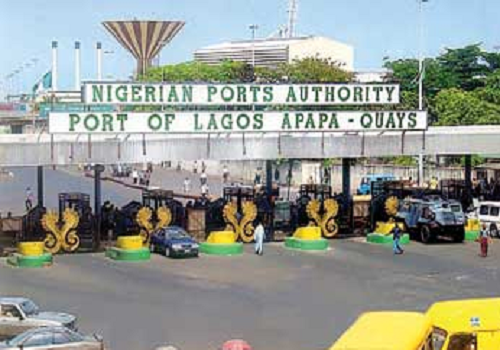The Nigerian Ports Authority’s (NPA) electronic call-up system, known as Eto, has received a resounding vote of confidence from the Association of Maritime Truck Owners (AMATO). Secretary-General Mohamed Bala, speaking after a peaceful rally in Apapa, lauded the system as a “game-changer” and a “landmark achievement” in Nigeria’s maritime logistics history. This digital platform has effectively addressed the persistent gridlock that plagued the Apapa and Tincan Port Access Roads for decades, ushering in an era of improved efficiency, transparency, and automation in truck scheduling and port access. Bala emphasized the significant positive impact of Eto, highlighting the seamless evacuation of import and export cargoes and the restoration of order to the port access roads. He expressed gratitude to the NPA for implementing the system and to the Lagos State Government for enforcing compliance with the associated Standard Operating Procedures.
The Eto system has revolutionized port access by allowing truckers to book slots remotely and affordably from anywhere in the world, eliminating the need for physical queuing and engagement with exploitative road cabals. Before Eto, truckers often paid exorbitant fees, ranging from N250,000 to N300,000, for access tags with no guarantee of entry. The Eto system, at a flat rate of N21,500, has eradicated this extortion and provided a fair and transparent process. The resulting improved traffic flow has revitalized the Apapa area, increasing property values and restoring community life. Truckers no longer face the dangers of exhaustion from prolonged waiting periods, improving their safety and well-being. The overall impact has been a significant boost to business operations, facilitating timely cargo movement and reducing delays.
Despite the overwhelming success of the Eto system, some detractors have initiated a campaign to discredit the platform. Sani-Bala identified these critics as beneficiaries of the now-defunct manual system, who profited from the exploitation of truckers. He condemned their hypocrisy, highlighting the irony of those who once charged exorbitant fees for port access now accusing the affordable Eto system of being fraudulent. He urged the trucking community to remain vigilant and resist attempts to undermine the progress achieved through the electronic call-up system. He emphasized the permanent demise of the manual system and the necessity of embracing technology-driven solutions for sustainable port logistics.
The positive impact of the Eto system extends beyond improved traffic flow and cost savings for truckers. The system has brought a sense of order and sanity to the port environment, benefiting the entire community. The once chaotic and congested Apapa area is now experiencing a resurgence, with businesses operating on schedule and property values on the rise. The improved efficiency in cargo evacuation has positive implications for the Nigerian economy, facilitating smoother trade and contributing to economic growth. The Eto system stands as a testament to the transformative power of technology in addressing complex logistical challenges.
Afeez Alabi, Public Relations Officer of the Maritime Truck Drivers Association, echoed the support for the Eto system, emphasizing the transparency and order it has brought to truck movement. He warned against any reversion to the previous chaotic system, which would cripple port operations. Alabi acknowledged the emergence of a black market for call-up slots, where prices have inflated to between N120,000 and N130,000, significantly higher than the official N21,500 fee (originally introduced at N10,250). This highlights the persistent challenge of corruption and the need for continued vigilance in enforcing the proper use of the system. Despite this challenge, the overall benefits of the Eto system remain undeniable, significantly improving the port access experience for truckers and contributing to a more efficient and organized maritime sector.
The Eto system serves as a model for leveraging technology to address logistical bottlenecks and improve efficiency in critical infrastructure. Its success in Apapa demonstrates the potential for similar solutions to be implemented in other areas facing similar challenges. The system’s positive impact on the trucking community, the local economy, and the overall efficiency of port operations underscore its importance as a sustainable and effective solution. Continued support and vigilance are crucial to ensure the long-term success of the Eto system and to prevent a regression to the chaotic and exploitative practices of the past. The embrace of technology-driven solutions like Eto paves the way for a more efficient, transparent, and sustainable future for Nigeria’s maritime logistics sector.


